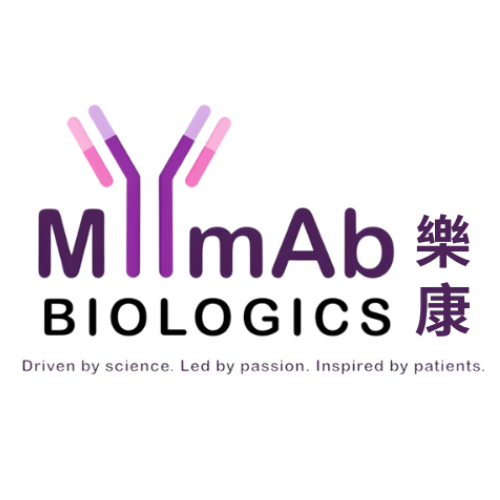Tissue Microarray
MYmAb Biologics is a trusted tissue microarray provider delivering ethically sourced, clinically validated human tissue microarrays for cancer research and translational studies. Through our ArrayZeal platform, we produce high-quality tumour tissue microarrays designed for reproducibility, consistency, and biological relevance—supporting reliable biomarker discovery, drug development, and precision medicine research.
Tissue Microarray
A tissue microarray (TMA) is a high-throughput research tool that enables the simultaneous analysis of hundreds of tissue samples on a single slide. By arraying small tissue cores from donor blocks into a recipient paraffin block, TMAs allow researchers to evaluate protein expression, tissue morphology, and molecular alterations under standardized experimental conditions. Tissue microarrays play a critical role in cancer research, particularly in large-scale studies requiring consistent comparison across multiple patient samples. TMAs are widely used in immunohistochemistry (IHC), H&E staining, immunofluorescence, and in situ hybridization, enabling efficient validation of biomarkers, assessment of tumour heterogeneity, and correlation with clinical outcomes.
A tumour tissue microarray specifically focuses on cancerous tissues, often enriched with detailed pathological and clinical annotations. Unlike normal tissue microarrays, tumour TMAs capture disease-specific characteristics such as tumour grade, stage, histological subtype, and molecular features. This makes tumour tissue microarrays particularly valuable for oncology research, therapeutic target validation, and studying disease progression and treatment response.
Tissue Microarray Construction and Quality Control
Each MYmAb Biologics tissue microarray is constructed with precision using carefully selected tissue cores extracted from clinically validated donor blocks. Multiple cores per case may be included to capture tumour heterogeneity. All arrays undergo stringent quality control, including pathologist review, histological verification, and consistency checks to ensure reliable performance across experiments.
Compatibility With Downstream Applications
Our tissue microarrays are optimized for compatibility with standard laboratory techniques, including IHC, H&E staining, immunofluorescence, and in situ hybridization. High-quality paraffin embedding and standardized construction ensure consistent antigen preservation and staining performance, supporting both exploratory and confirmatory research workflows.
Why Choose MYmAb Biologics
All Tissue Microarrays Are IRB-Approved and Fully Consented
All MYmAb Biologics tissue microarrays are IRB-approved and fully consented, ensuring ethical compliance and responsible use of human biological materials. Samples are collected under strict governance frameworks, protecting donor rights while enabling high-impact biomedical research. This ethical rigor supports regulatory-ready research and enhances data credibility across academic, clinical, and pharmaceutical studies.
Our Tissue Microarrays
MYmAb Biologics offers a comprehensive portfolio of human tissue microarrays designed to meet diverse research needs. Our TMAs combine ethical sourcing, robust quality control, and population-relevant biological diversity to support high-impact scientific discovery.
Benefits of Tissue Microarrays
Tissue microarrays offer numerous advantages for researchers seeking efficient, large-scale tissue analysis:
- High Efficiency: Analyze multiple samples simultaneously, saving time and laboratory resources.
- Cost-Effective: Reduce reagent and consumable usage compared to traditional slide-based studies.
- Standardized Data: Maintain consistency across experiments with uniform sample processing.
- Broad Sample Representation: Study diverse tissue types, cancer subtypes, and patient demographics in one microarray.
- Custom Solutions: Tailor TMAs to specific research needs, ensuring relevant and focused analysis.
Applications of Human TMAs in Cancer Research
- Biomarker Discovery & Validation: Identify and confirm new diagnostic and prognostic markers.
- Drug Development & Screening: Assess treatment responses across different tissue samples.
- Histopathological & Morphological Studies: Examine tumor characteristics and disease progression.
- Molecular Profiling: Conduct large-scale genomic, transcriptomic, and proteomic studies.
- Precision Medicine Research: Support personalized treatment strategies by analyzing patient-specific tissue characteristics.
Why Choose MYmAb Biologics for Tissue Microarrays
MYmAb Biologics ethically produces human tissue microarrays (TMAs) through our ArrayZeal platform, guided by strict ethical standards and built on a foundation of precision and reliability. Each TMA is carefully constructed using clinically validated human tissue samples sourced from diverse Southeast Asian populations. This ensure better representation of ethic genetic variability, which is an important factor that influences disease progression and treatment responses. Committed to delivering reliable and reproducible results, ArrayZeal support robust scientific discoveries and accelerate translational research. By offering Southeast Asian-derived TMAs, we empower researchers to explore novel therapies within a broader genetic context, paving the way for groundbreaking discoveries and personalized medicine.
Frequently Asked Questions
Conventionally, immunohistochemical staining has been performed on whole tissue sections. However, this traditional method, which requires the processing and staining of hundreds or even thousands of slides, is time-consuming and expensive. In contrast, a TMA allows simultaneous analysis of hundreds of tissues in one go using identical conditions. Thus, TMA technology markedly conserves reagents, saves time and greatly decreases the amount of archival tissue required for a particular study, thus preserving the tissues for other diagnostic and/or research needs.
A core size of 0.6 to 2.0 mm is adequate to represent the whole tissue section.
Sometimes, a small core of sample may not be representative of the whole tumour, especially in heterogenous tumour types. To overcome this, we offer TMAs that include two to three cores of samples from different locations of a single tumour block.
Negative and positive control TMA slides should be included as they are important in ensuring the validity of the experiment.
To help with TMA orientation.
A minimum of 3 slides per TMA type to include positive and negative controls.
All patients are anonymised.
Yes. You may contact us for further details and discuss on your needs.
The TMAs are sent in ambient temperature.
We recommend you to store your TMA slides at 4°C for not more than a year.
Request for Quote
Location:
Block D-G-8, UPM-MTDC Technology Centre III, Universiti Putra Malaysia, 43400 Serdang, Selangor Darul Ehsan, Malaysia.
Phone:
03-8938 9819
Email:
info.mymab@gmail.com
